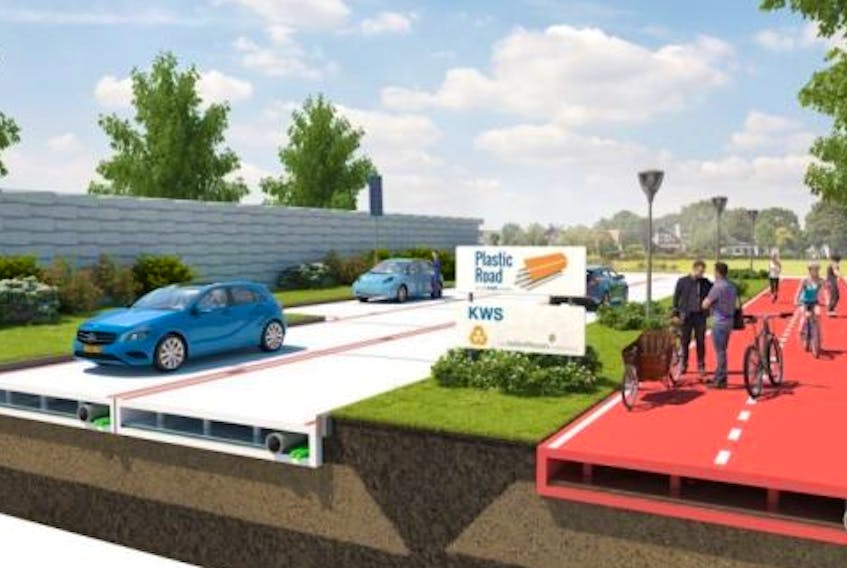Pollution?
You’re driving on it.
When people talk about rising carbon dioxide levels in the atmosphere and its effects on global climate, a familiar concept is “carbon sequestration.”
The idea? Basically, to mitigate the effects of carbon, particularly CO2, by giving it what amounts to a time out by finding ways to store it so it can’t affect the climate.
There have been are variety of suggestions, like injecting it into underground reservoirs. But it’s not necessarily always a technological leap; even planting more trees helps to trap carbon dioxide.
But here’s an interesting corollary idea — how about plastic sequestration?
The world has a growing problem with plastic; it is one of the most pervasive and persistent pollutants we have. Few areas of the world’s oceans don’t have wholesale plastic contamination, ranging from bobbing, obvious plastic trash to microscopically small particles that are even finding their way into the food chain.
But what if you could reuse single-use plastics and take them out of general circulation at the same time?
There’s even been research suggesting that plastic microparticles have found their way into airborne transport, falling back to Earth in rain and snow in regions as remote as mountain peaks and the Arctic.
But what if you could reuse single-use plastics and take them out of general circulation at the same time?
In Zwolle, the Netherlands, a group of companies have built and tested a prefabricated road built out of recycled plastic — a road that not only carries traffic, but has a channelled plastic understorey that allows for the installation of wiring, drainage pipes and other infrastructure.
Picture a road put together essentially like Lego blocks, with interlocking sections that can be replaced piecemeal.
Interestingengineering.com points out, if the goals of future roadbuilding are “increasingly longer lifespan, shorter construction and maintenance time, be more sustainable, achieve ever-higher noise reductions, and also be financially competitive, then roads made of plastic is what ticks all the boxes…” The companies involved envision bike paths and parking lots made out of their interlocking plastic blocks.
The fact is, there are more than 100 million tonnes of plastic waste being produced every year, and every single kilogram of that waste that can be put into stable long-term use is a kilogram that wouldn’t end up in the ocean or elsewhere in the global waste stream.
Would it work everywhere?
Probably not. There is such a wide range of weather conditions that no one road solution will work everywhere. Naysayers would probably be quick to jump in with points like “What about snowplowing? And brittleness in extreme cold? Or car fires? What if the road caught fire, too?”
But every single kilometre of usable plastic road that we could find a home for would help reduce a growing waste problem on a long-term basis.
And maybe, even longer; the plastic roadbuilders are moving towards having their product be 100 per cent recyclable.








